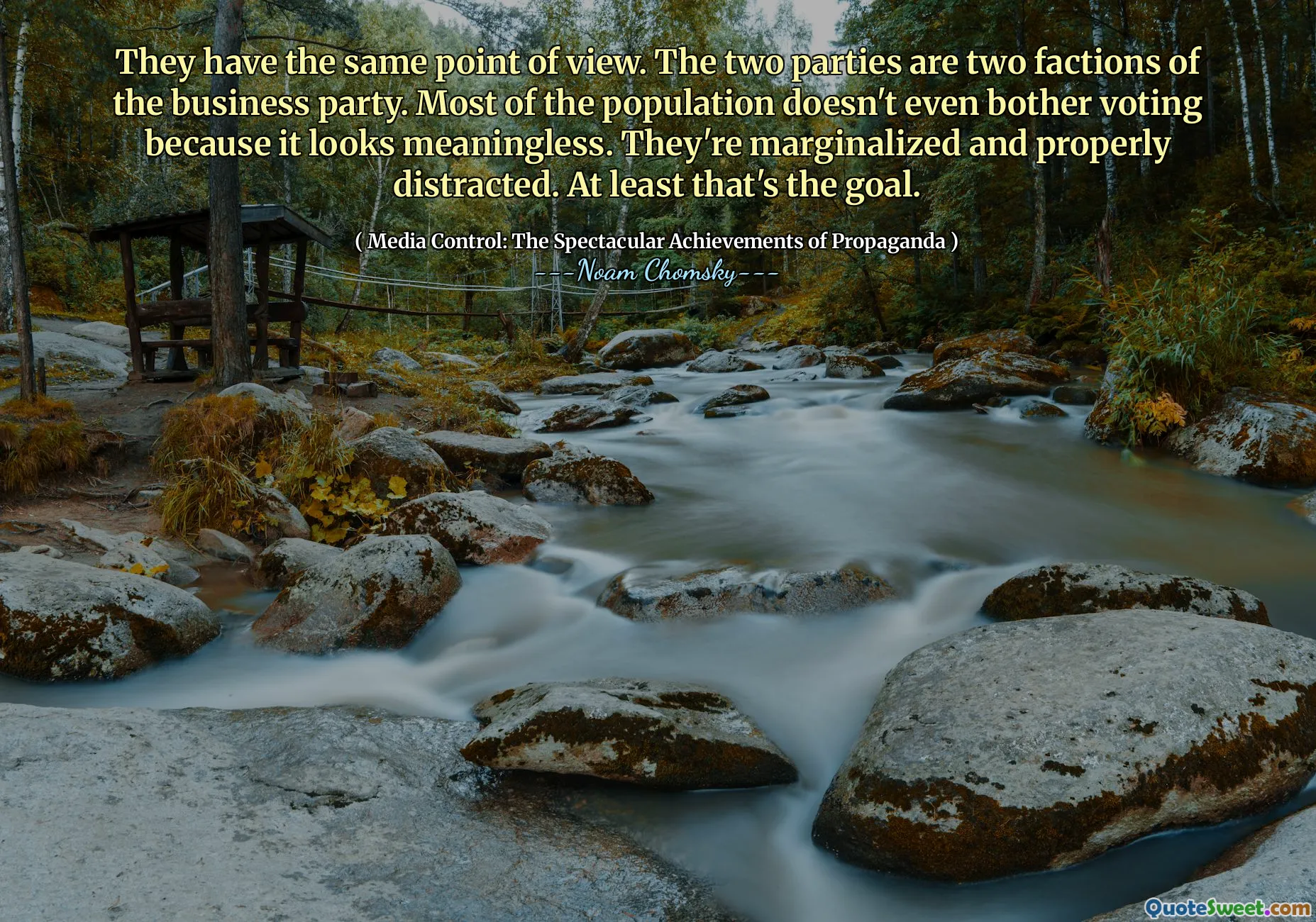
They have the same point of view. The two parties are two factions of the business party. Most of the population doesn't even bother voting because it looks meaningless. They're marginalized and properly distracted. At least that's the goal.
Noam Chomsky analyzes the similarities between two major political parties, suggesting they both represent the interests of a broader business agenda. He argues that the distinctions between them are superficial, leading to a political climate where many citizens feel their participation is futile. This disillusionment is compounded by a lack of engaging and meaningful issues, leaving the populace feeling marginalized.
This marginalization is further exacerbated by distractions that prevent people from recognizing the true nature of their political choices. Chomsky highlights the prevalence of propaganda, which aims to keep the public disengaged and unaware of their agency within the political system. In this context, voting is seen as inconsequential, contributing to a cycle of political apathy.
